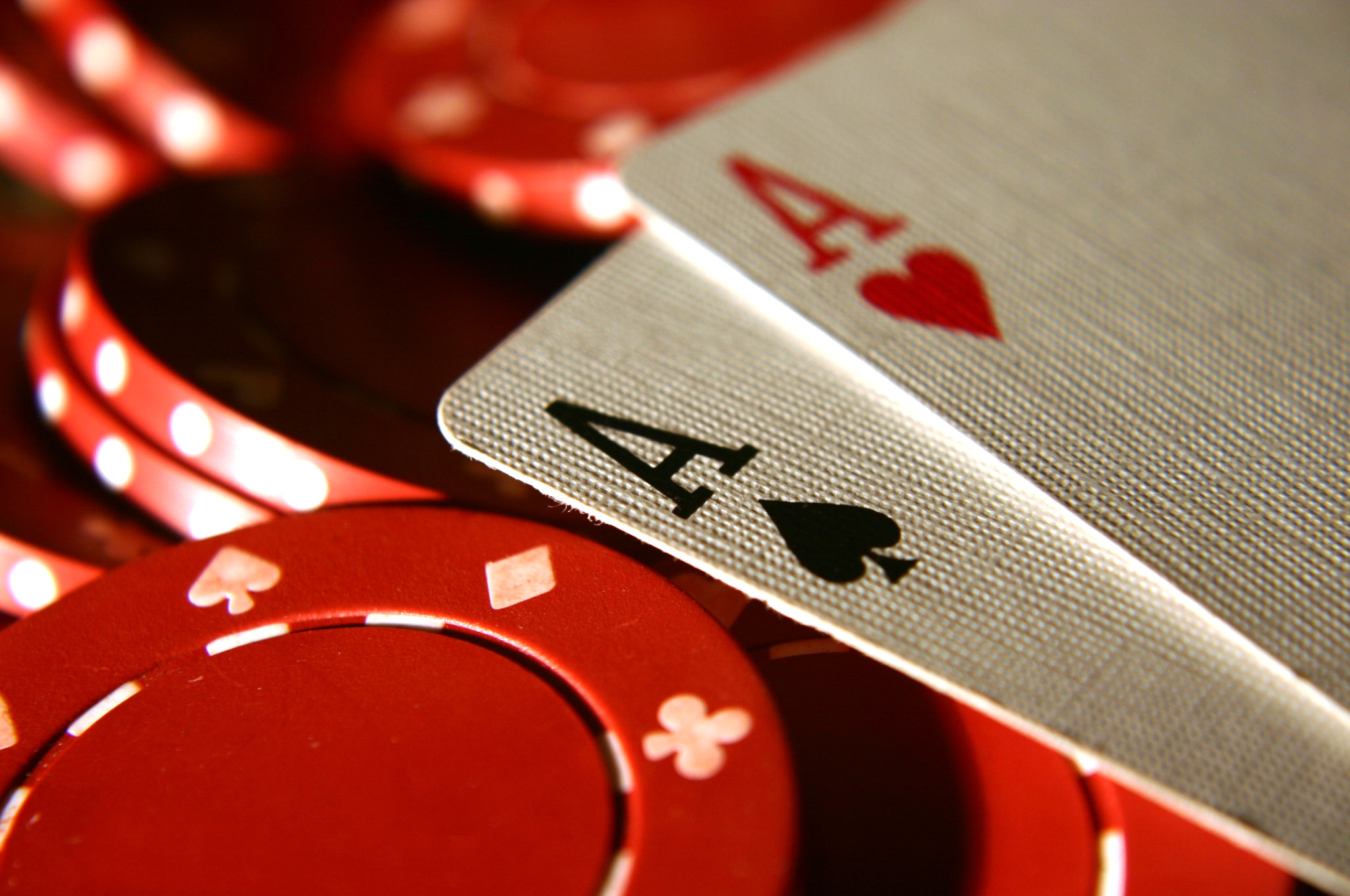
Poker STRATEGY For beginners

Poker STRATEGY For beginners
You know how to play poker. Now, it’s time to raise the level of your game with some basic poker strategy. The beauty of poker is that it involves a lot of skill. The best players may not win on a given night, but over time, the odds will be on their side. To be successful in your poker-playing career, you need to know when to play aggressively, when to step aside, and how to control your emotions. Or, as Kenny Rogers sang, you’ve got to know when to hold ’em, and know when to fold ’em.
Know the Rules

First, to be able to develop your own poker play style, you’ll need to have a strong handle of the basics.
Poker hands
An understanding of hands and their strength is crucial to assessing the value of your starting cards. To make sure you know if a flush beats a straight (it does) make sure you are familiar with all poker hands.
Poker positions
Your position has a huge effect on poker basic strategy. The later you get to play means the more information you can gather on opponents who go before you. Here’s a helpful article on poker positions.
Learn the Lingo
Poker lingo doesn’t just make you sound cool at the table. Understanding the basic poker terminology is important for following the game and learning about poker strategy for beginners. However, the sheer amount of lingo can be intimidating for a beginner—don’t worry, it gets easier!
Poker terms
All In: The act of risking all of your chips on one single hand. “He pushed All In with aces.”
Bad beat: A term for bad luck, typically when a player has a good hand and loses to someone who gets lucky. “What a bad beat. She flopped trip aces and lost to a backdoor flush.”
Blind: Forced bets posted by the players to the left of the dealer button in flop-style poker games. The number of blinds is usually two—the small blind and the big blind—the small blind typically being half the big. “Blinds are about to go up next hand.”
Call: Matching the amount of the bet or raise made prior. “You raised five? I call.”
Check: To decline the option to bet. A player cannot check once someone else has bet. “Check to me? I check, too.”
Community cards: The cards in the center of the table which are shared by all players. “What’s with all of the suited community cards?”
Draw: Playing with a hand that is not yet made but has the potential to become a made hand if it hits a card. “I have a straight draw.”
Flop: The first three community cards turned up as one group. “The flop came, and I was happy to see an ace.”
Fold: A player gives up on the hand when it’s their turn to act. The player lays down their cards and can no longer win the pot. “I’ve got nothing. I fold.”
Kicker: An unpaired card used to determine the better of two near-equivalent hands. “We both had three of a kind, but I had the better kicker.”
Muck: The pile of folded and burned cards during a hand. “She folded, tossing her cards in the muck.”
Nuts: The best possible hand for a given board. “She flopped the nuts and raised him All In.”
Open-ended straight draw: Four cards of a straight that can be completed on either end. For example, 5-6-7-8 can become a straight with either a 4 or 9. “The odds are way better of hitting an open-ended straight draw than a gutshot.”
Trips: Three of a kind. “Two kings came on the board, giving me trips.”
For a full glossary of Poker terms, check out our Poker Glossary.
Controlling Your Emotions and Impulses
How much strategy is there in online poker? Tons! But, in order to play effectively, you have to keep your cool. Poker is a series of little battles—to win the war, you have to play smart. This requires you to control your emotions, especially when they’re working against you. After getting unlucky or playing a hand poorly, people naturally get frustrated. Instead of getting knocked off your game plan by a bad hand, stick with your strategy and avoid going on tilt. Take some deep breaths, or even step away from the table for a bit. Missing a few hands will cost you far less than getting reckless with your chips.
Likewise, you sometimes have to go against natural impulses. Know your personality. If you’re someone whose entire being screams to fold when a pot gets big, have a strategy in place for those moments. If you have a good hand, you may need to fight your impulse. The same thing applies to naturally aggressive players. If you love to take charge of a table and bluff a lot, you may need to rein it in. The more you play, the more you’ll understand your primary style, utilize your strengths, and minimize your weaknesses.
One way of making sure you control your emotions and stick to your strategy is to avoid alcohol. You may feel like alcohol loosens you up, however, it’s a slippery slope. Alcohol lowers inhibitions and increases risk-taking, which can make you play thoughtlessly, leading to money lost.
At DraftKings, gaming responsibly is a top priority. For tips and tools offered by DraftKings, take a look at our responsible gaming page.
What is Bluffing in Online Poker?
Bluffing is the art of pretending to have a better hand than you do. The great news for online players is this is largely going to be done through betting, which means you can easily bluff with a click of a mouse. In person, you can bluff by behaving confidently, but this can be hard to pull off. If you overdo it, or people begin to read you, that can lead to your opponent winning the hand. You might be better off bluffing through your bets.
Some of the best poker strategies involve semi-bluffing. Semi-bluffing is a bluff where you could also hit a card to complete a strong hand. The beauty of the semi-bluff is that if your bluff fails, you can still hit a card and win—all is not lost.
When Does Being Aggressive Pay Off in Poker?

It sometimes pays to be aggressive. However, many poker newcomers struggle with betting aggressively. It’s common for beginner and novice players to check when they should bet a decent hand. If you have Ace-King, Ace-Queen, or a high pair, these are great hands to play aggressively. A suited hand, especially if it has an Ace, may be a good place for aggression if you’re in a good position.
Novice players can struggle to raise with good hands, often just calling instead. Not raising may be undesirable for two reasons: First, you’re keeping the pot size small, which means the amount you can win is less. Poker is all about optimizing your moments, so when you have a big hand, you want to get the absolute most out of it. Second, it’s bad to not raise a good hand if you keep people in the hand for cheap. This means people can get lucky later, and you didn’t force them to pay for the opportunity. If they want to roll the dice with bad cards, they need to pay you. They might win from time to time, but you’ll win more in the long run.
The exception to this is if you want to bet as if you have a weak hand to fool your opponent. However, this poker strategy for Texas Hold’em should be used sparingly. It’s almost always best to bet a strong hand. Learn more about how to play Texas Hold'em so that you can be better prepared for it.
Be patient
We’ve established that being aggressive may pay off—but don’t force the issue. Poker is about being strategic by selecting your moments to play. If you become aggressive with bad hands, in a bad position, you may start losing chips fast.
Statistically speaking, most of the cards you are dealt will be losing hands. So what’s one to do? Fold. A lot. If you have a non-paired lower hand, get rid of it. Wait until you have a great hand, or a decent hand in good position. When the time comes, bet and stay aggressive. Until then, fold and use that time to watch your opponents. A large aspect of poker is playing against the person, not just the cards.
How do you know the person? By observing their habits during hands. This can be done even online. When you’re out of a hand, it’s the ideal time to study others. If you spot a loose opponent, you’ll be ready to call their bluff later. Notice a cautious player who plays very few hands? When they finally bet, they likely have something.
Tips for Improving Long-Term Strategy
Practice
Ever hear that practice makes perfect? Well, that applies just as much to poker as anything else. Now that you have a strategy for how to play poker, it’s time to work on it. The more you play poker, the more you’ll learn the nuances of the game. The most advanced poker strategy in the world doesn’t prepare you for the emotions of a big hand or bad beat. Practice gives you that much needed experience, so you can learn not only poker, but who you are as a poker player.
Play with different groups of people
The more styles of poker you find yourself up against, the stronger and more developed your game will be. Always playing against the same opponents will limit how much you can learn, and the games will tend to get stale.
Be mindful of your money
It’s crucial to know how much you’re willing to lose. If you’re going to be playing poker regularly, set yourself a budget. If you plan to play a lot, you may want to play in low stakes games until you begin to pile up some winnings. Playing poker for money raises the stakes, but it should always remain fun. Play Texas Hold’em with DraftKings at the price point you feel comfortable with, and develop your own strategy for how to win poker online. DraftKings also offers player limit pages, where you can set self-imposed limits on your gameplay.
